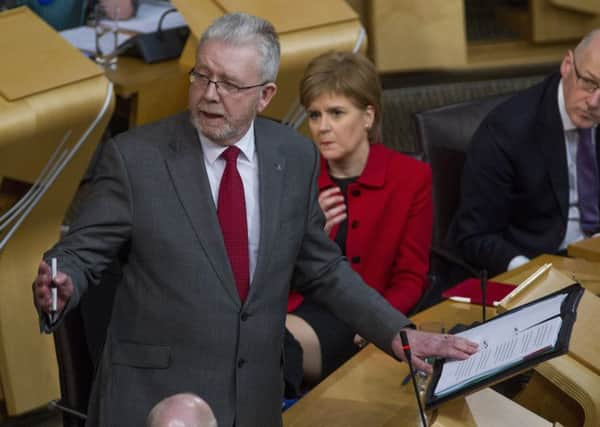Leader comment: Symbolic vote could pave way for greater change


The groundswell of opposition in Scotland to Brexit was confirmed during last summer’s referendum and, if anything, it has intensified in the months since as the UK government has stumbled from one crisis to the next.
Yesterday’s Scottish Parliament vote of 90 to 34 in opposition to the Article 50 legislation was the most predictable development in a process that has been anything but.
Advertisement
Hide AdAdvertisement
Hide AdThe question now, however, is what will the lasting significance of the vote be, short of reinforcing Scotland’s stance against leaving the European Union?
The vote itself, as everyone knew, had no bearing on Brexit proceedings, a point rammed home by last month’s ruling by the Supreme Court that there was no legal need for Holyrood to give its consent to the triggering of Article 50.
There is, however, a distinction between a vote’s impact and its influence, a point understood only too well by First Minister Nicola Sturgeon and her cabinet.
She described it as one of the most important moments in the 18-year history of Holyrood. It is a claim many will disagree with, but it had the desired effect of publicising what the vote represents.
As Brexit minister Michael Russell put it yesterday: “This vote is more than symbolic. It’s a key test of whether Scotland’s voice is being listened to, whether our wishes can be accommodated within the UK process.”
In Scotland, the issue of Brexit is now a question of two competing mandates – those of the Scottish Government and of the UK government. In the eyes of the former, the decision to press ahead with a hard Brexit is illustrative of the democratic deficit at the heart of the Westminster system.
The result of yesterday’s vote has added weight to that argument, especially with the vast majority of Scottish Labour’s MSPs supporing the motion at a time when the national party is expected to impose a three-line whip to ensure its MPs back the unamended Brexit bill. The gulf between the party of Kezia Dugdale and that of Jeremy Corbyn remains one of the most fascinating sub-plots of the entire process.
The focus will now turn back to the UK government and, in particular, Prime Minister Theresa May. She has no obligation to pay heed to yesterday’s developments, and nor is she likely to, but such a course of action remains a constitutional gamble.
Advertisement
Hide AdAdvertisement
Hide AdIf Ms May rejects – or worse still, ignores – the result of the Holyrood vote, it will strengthen the cause of those determined to hold a second referendum on Scottish independence. Should such a scenario arise, Holyrood’s vote will not merely be symbolic – it will determine the future make-up of Britain outside of the EU. Despite what her ministers might say, even Ms May knows she could not ignore that.